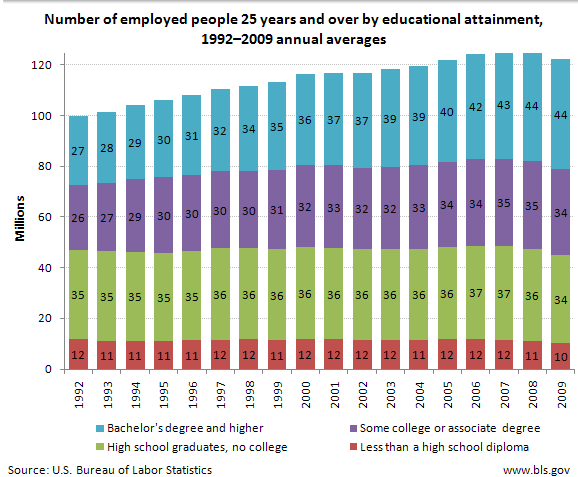The Great Recession is revealing some fundamental challenges in our economy. One of those challenges revolves around the exceedingly expensive college degree and its ability to translate into employment. As a percent many more American’s have a bachelor’s degree today than say in 1992 yet unemployment for college educated Americans is at modern record highs. Another profound challenge facing American families is retirement savings (or lack thereof which is more likely the case). Retirement is largely becoming a luxury that only a handful of families can count on. As we look back at the last decade not all global stock markets were created equal and this is evident when we compare the US stock market to those abroad. Finally we will examine what areas are seeing major price increases all the while overall inflation appears to be muted to average Americans.
College educated rise but less employment

Source: BLS
In 1992 27 percent of those employed and 25 years of age or older had a bachelor’s degree or higher. Today that figure is up to 36 percent. However back in 1992 during another recessionary time those with bachelor’s degrees or higher had an unemployment rate of 3.5 percent while today it is up inching closer to 5.5 percent.
“In other words as a nation our employed workforce is more educated but it is also having a harder time gaining or maintaining employment. At the same time college costs have far outpaced the overall inflation rate.”This may seem counterintuitive because in terms of career aspiration a college degree is less likely today to secure you a job compared to 1992 but it is much more expensive in real terms. So what are you really paying for? Of course college is not merely a means to a job but a place where students develop into well rounded citizens. Yet many for-profit institutions sell themselves as job factories and are all the willing to take federal financial aid without any statistics to back up their career placement rates.
Read the entire article

No comments:
Post a Comment